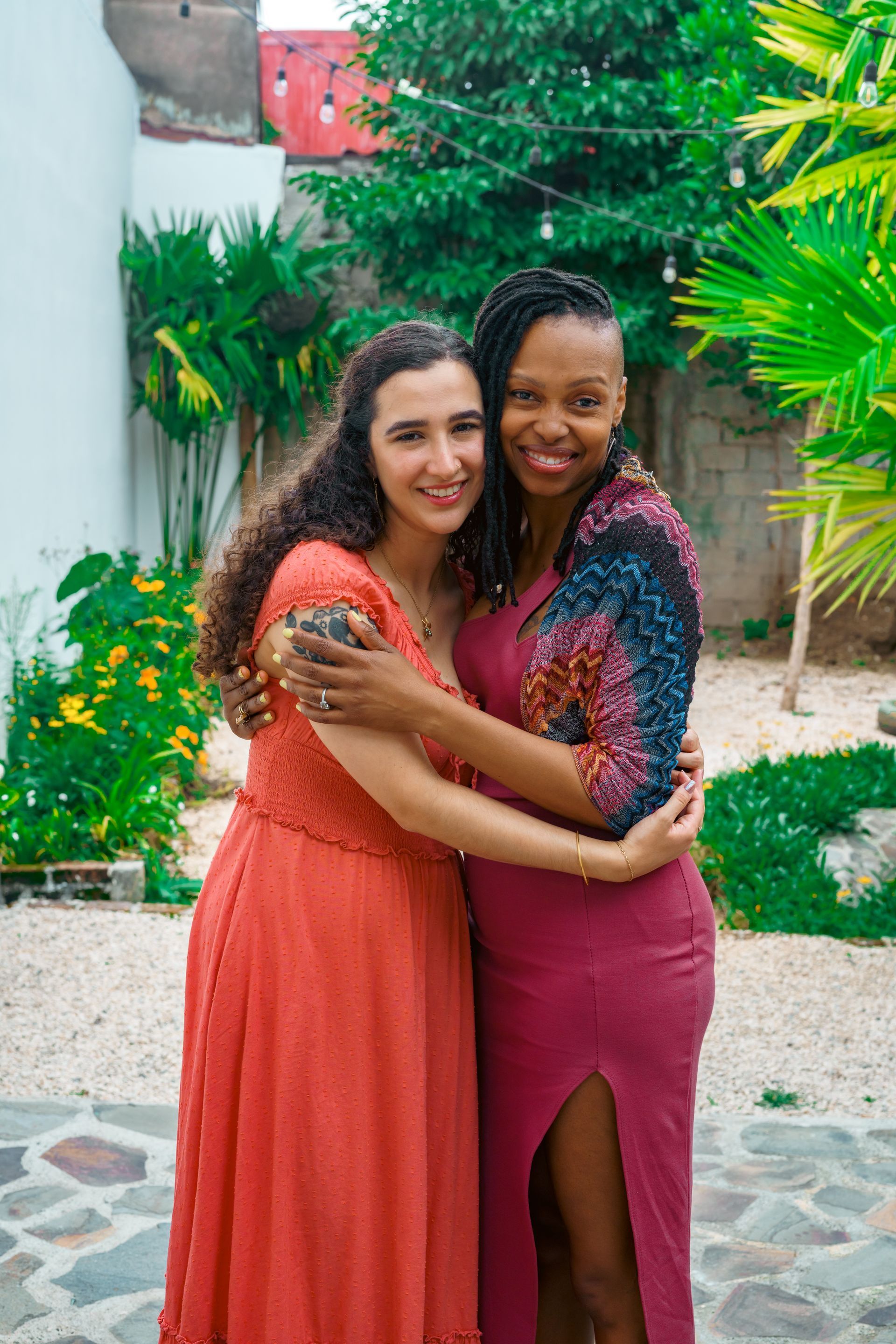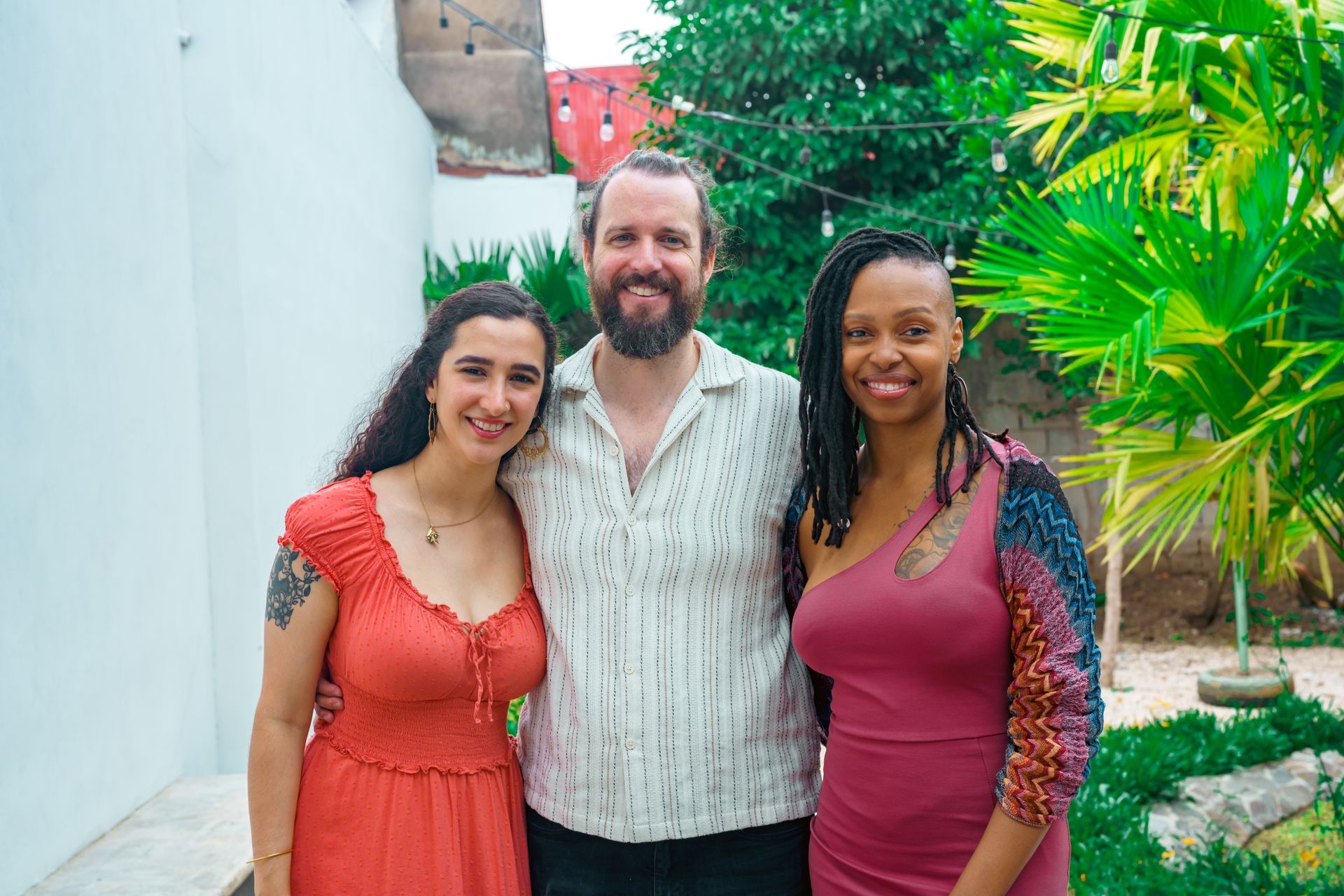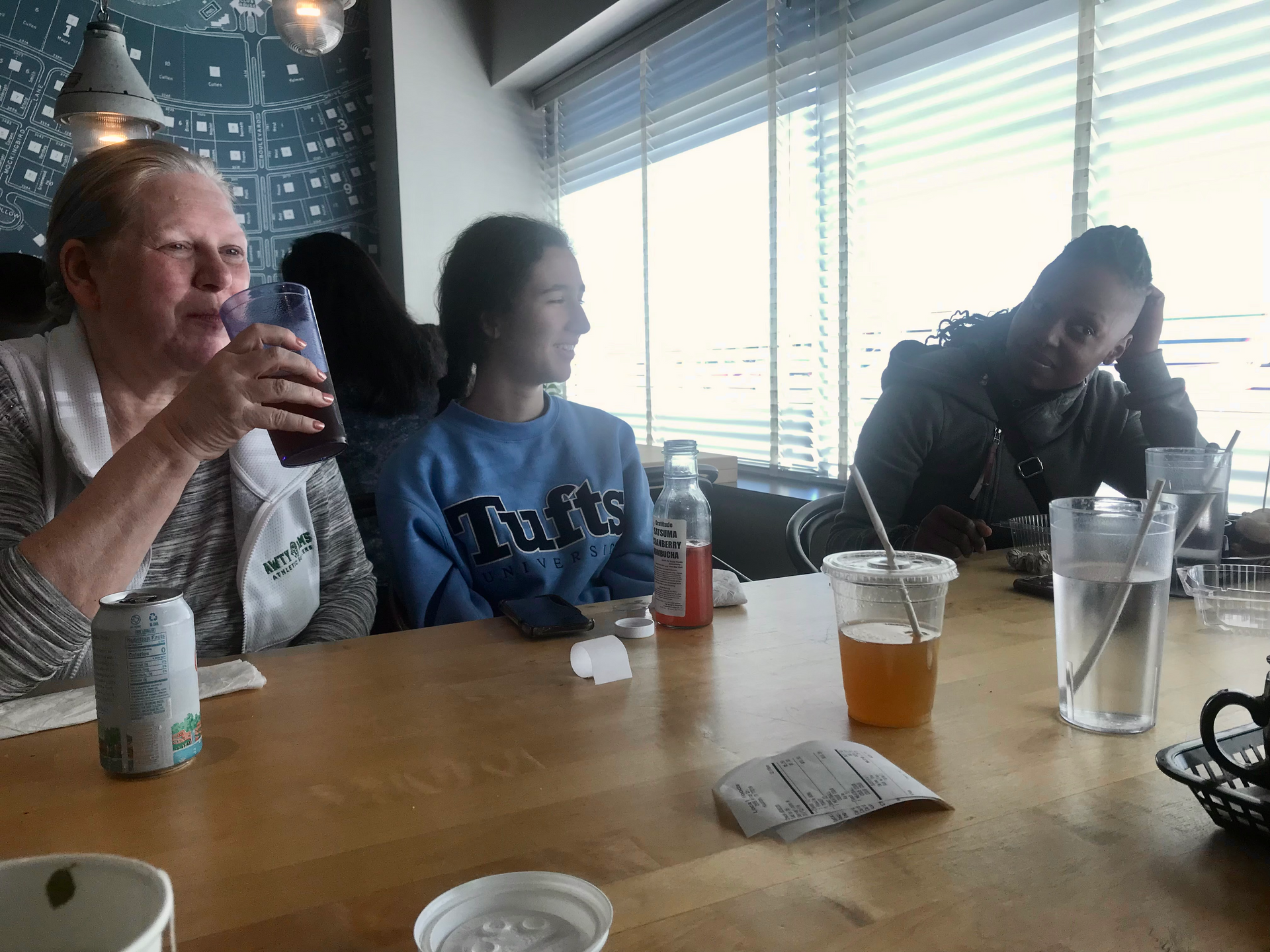Director's statement

I met Kema long before I ever imagined becoming a filmmaker.
In 2017, when Hurricane Harvey hit Houston, my mom and I spent days watching the rising water, wondering when it would reach our front door. When by some miracle our home stayed dry, we offered our vacant garage apartment to a family who had just lost theirs. That family was Kema’s. At sixteen, I couldn’t have known how profound that meeting would become. What began as an offer of shelter grew into something more. I babysat her daughter, Aaralyn, and Kema brought us homemade treats. In a time defined by chaos and loss, we found warmth and connection.
Fast forward to 2023: I was exploring documentary filmmaking, searching for a nature-based story about grief and healing. I had recently lost my grandfather to cancer and nearly lost my mother to a heart attack. I was reeling from the enormity of my grief, and from how quickly the world expected me to move on from it. Through it all, I kept thinking of Kema.
I’d been following her journey from afar, watching her navigate her own devastating loss: her sister’s death, just months after my own world had unraveled. What she shared was unlike anything else I’d seen: raw, vulnerable, unflinching… and also radiant. She spoke about pain without shame. She moved through it deliberately, creating beauty and connection in spite of it. Her grief didn’t consume her; it transformed her.

I pitched the idea to my co-director, David, and he felt it instantly too. We spent a week drafting a paragraph-long text, hoping Kema would be willing. Her response? “Girl, you don’t have to sell me on this. I would do it for you if it was shot with just your iPhone!!… Just tell me what you need!”
Those words have carried us ever since. Over the last two years, we’ve spent countless hours recording interviews, trekking through the jungle, sitting together in silence and in story. In that process, we’ve built something special, rooted in trust and friendship.
I want to acknowledge that David and I, as the film’s directors, are white and telling the story of a Black woman. That dynamic matters. Too often, stories about Black women are filtered through outside lenses that flatten, distort, or exploit. From the start, we have been intentional to ensure this is not that. Kema and I share years of laughter, grief, and growth, and that trust has guided every creative decision. Kema is the heartbeat of this film, and she has been an active, honest voice throughout. Our small, close-knit team has built this project on listening, consent, and genuine respect. More than a collaborator, Kema has become a mentor and a friend, and this film is, in many ways, a love letter to the strength and beauty of that bond.
And that’s part of why this story needs to be told now.
In a media landscape saturated with survival narratives where Black people are often reduced to their trauma, KEMA offers something different: a Black woman’s story told in its full complexity. It doesn’t flinch from the darkness, but it also sings with joy, transformation, and strength. It is a portrait of a woman who dares to live differently, to heal out loud, and to redefine what power looks like.
The film asks us to reconsider not just how we live, but how we meet death. In a world exhausted by endless grind, disconnected from nature, and paralyzed by unspoken grief, Kema invites another way. Her journey of reconnecting with the earth, becoming a death doula, and redefining wellness reminds us that healing and happiness are choices. She shows us that rest can be an act of resistance, that grief can be sacred, and that death, when met with reverence, can bring peace rather than fear.
I began this film hoping to make sense of my own grief. What I found was a complete reorientation towards life — a freedom I didn’t even know I needed. My hope is that KEMA offers that same liberation to others. Regardless of your identity, background, or beliefs, this story invites you to feel more deeply, to live more consciously, and to love more boldly.
This is the story I needed. And it’s the story the world needs now.
Sincerely,
Sara Morsi
Co-Director of KEMA
